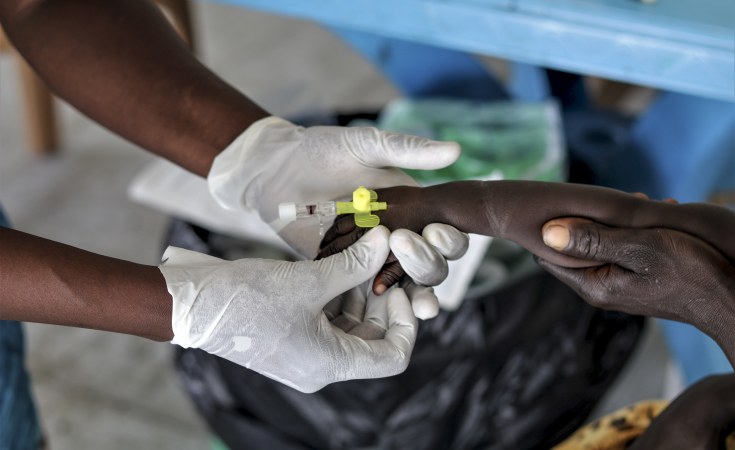Malaria cases in Rwanda have dropped by 88 per cent as of 2023, according Rwanda Biomedical Center (RBC).
The progress was highlighted as Rwanda prepares to join the global community in observing World Malaria Day on April 25. This yearly event aims to increase awareness about malaria and raise funds for its prevention and treatment.
Dr Aimable Mbituyumuremyi, Division Manager of the Malaria, Neglected Tropical Diseases and Other Parasitic Diseases Division at RBC, said in 2016, the country recorded around five million malaria cases.
ALSO READ: Rwanda records 60% reduction in malaria deaths
However, he said, combined intervention measures curtailed these cases to 600,000 in 2023, representing an 88 per cent reduction.
"Severe malaria cases that resulted from not acquiring treatment in time were 18,000 cases in 2016. Since community health workers are managing malaria cases in time, the number lowered to 1,300 in 2023. This is a 90 per cent reduction," Mbituyumuremyi said.
He also mentioned that malaria deaths, which exceeded 600 in 2016, decreased to 51 in 2023, representing a 91 per cent reduction.
In 2016, community healthcare workers were managing 18 per cent of malaria cases, they are now handling 60 per cent of cases.
Mbituyumuremyi explained that community health workers play a remarkable role in malaria management, diagnosis, and treatment, stressing that there are two community health workers managing malaria per village.
The country has made strides in malaria control through adaptable evidence-based approaches such as information, education and communication, distribution of Long-lasting Insecticidal Nets (LLINs), Indoor Residual Spraying (IRS), and early diagnosis and effective management of malaria cases.
Mbituyumuremyi observed that extensive IRS campaigns in 12 districts, seven in Eastern Province and five in Southern Province including Huye, Nyanza, Ruhango, Gisagara, and Kamonyi, along with the distribution of LLINs in 18 districts, have helped decrease malaria cases by 71 per cent between 2016 to 2021.
ALSO READ: How Rwanda reduced the malaria burden in five years
He added that mosquito nets are distributed through routine services for special groups, such as pregnant women and children under the age of one at each national health centre in all 30 districts.
In 2020, RBC introduced larviciding--the process of applying chemicals or microbial agents to water sources to kill mosquito larvae before they mature into adult mosquitoes--using drones.
Mbituyumuremyi explained that RBC and partners also launched an integrated vector management by training communities, and local leaders to detect mosquitoes' breeding areas and prevent malaria.
"We have urged local NGOs to mobilise communities to have information on the proper use of bed nets and management of the environment.
"Although we encountered mosquitoes' resistance to insecticides and pesticides due to the insects' adaption to the chemicals to survive, especially between 2014 and 2017, as we only used pyrethroid-based products, we decided to rotate between Fludora fusion and Actellic since 2017 which have been effective," Mbituyumuremyi said.
Rwanda targets to eliminate malaria by 2030. The World Health Organization's (WHO) global technical strategy for malaria 2016-2030 sets ambitious but achievable global targets, including reducing malaria case incidence by at least 90 per cent by 2030, reducing malaria mortality rates by at least 90 per cent by 2030, eliminating malaria in at least 35 countries by 2030 and preventing a resurgence of malaria in all malaria-free countries.
Rwanda is hosting the 8th Multilateral Initiative on Malaria (MIM) Society Conference from 21-27 April to tackle the issue of malaria, focusing on the theme, "Grassroots mobilization to end malaria: invest, innovate and integrate."
The conference aims to build on the force and awareness generated by previous meetings, promote global collaboration in research to fight malaria in Africa, and ultimately ensure the accessibility of a critical mass of competent malaria researchers and control managers needed for effective and sustained containment of the disease in Africa.


